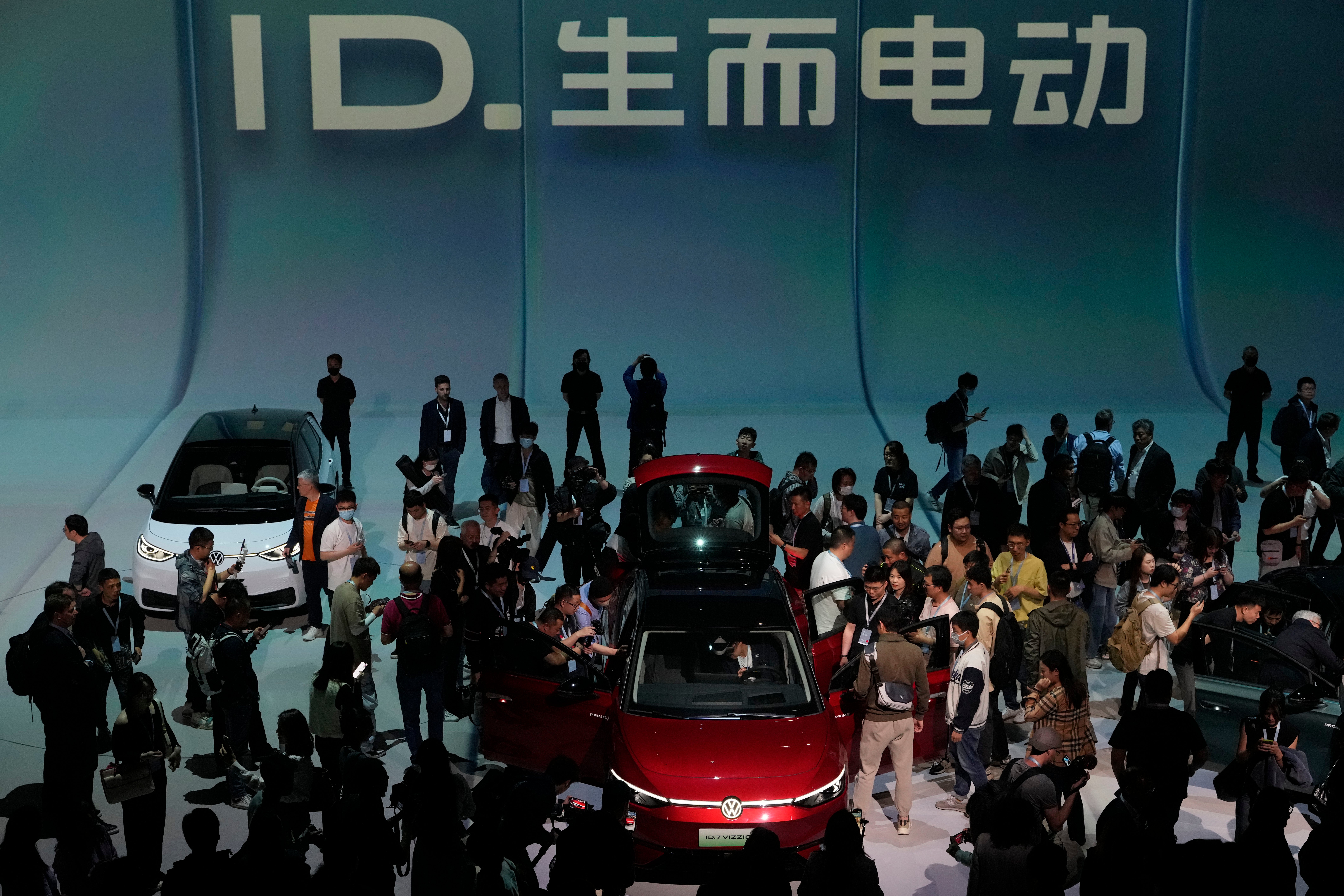The EU will impose duties on electric vehicle imports from China from Thursday
The European Union says it will impose duties on imports of electric vehicles from China from Thursday, after talks between Brussels and Beijing failed to find an amicable solution to their trade dispute

Your support helps us to tell the story
From reproductive rights to climate change to Big Tech, The Independent is on the ground when the story is developing. Whether it's investigating the financials of Elon Musk's pro-Trump PAC or producing our latest documentary, 'The A Word', which shines a light on the American women fighting for reproductive rights, we know how important it is to parse out the facts from the messaging.
At such a critical moment in US history, we need reporters on the ground. Your donation allows us to keep sending journalists to speak to both sides of the story.
The Independent is trusted by Americans across the entire political spectrum. And unlike many other quality news outlets, we choose not to lock Americans out of our reporting and analysis with paywalls. We believe quality journalism should be available to everyone, paid for by those who can afford it.
Your support makes all the difference.The European Union will impose duties on imports of electric vehicles from China from Thursday after talks between Brussels and Beijing failed to find an amicable solution to their trade dispute, European Commission spokesperson Olof Gill said Tuesday.
Electric vehicles have become a major flashpoint in a broader trade dispute over the influence of Chinese government subsidies on European markets and Beijing’s burgeoning exports of green technology to the bloc.
According to the European Commission, sales of Chinese-built electric cars jumped from 3.9% of the EV market in 2020 to 25% by September 2023, in part by unfairly undercutting EU industry prices.
Gill said that the duties would stay in force for a period of five years, but he said that the EU and China continue to negotiate on a solution.
“Any such solution would have to be effective in addressing the problem identified by the (EU) investigation, as well as World Trade Organization-compatible,” he told reporters. The commission manages trade on behalf of the 27 EU member countries.
The duties on Chinese manufacturers are expected to be 17% on cars made by BYD, 18.8% on those from Geely and 35.3% for vehicles exported by China’s state-owned SAIC. Geely has brands including Polestar and Sweden’s Volvo, while SAIC owns Britain’s MG, one of Europe’s bestselling EV brands.
Other EV manufacturers in China, including Western companies such as Volkswagen and BMW, would be subject to duties of 20.7%. The commission has an “individually calculated” rate for Tesla of 7.8%.
The EU’s retaliatory duties have run into opposition in Germany, which has Europe’s biggest economy and is home to major automakers.
The head of Germany’s auto industry association, VDA, said the imposition of the tariffs is “a setback for free global trade and so for prosperity, the preservation of jobs and Europe’s growth.” Hildegard Müller said the move increases the risk of a far-reaching trade conflict.
“The industry is not naive in dealing with China, but the challenges must be resolved in dialogue” Müller said in a statement.
———
Associated Press correspondent Geir Moulson contributed from Berlin.